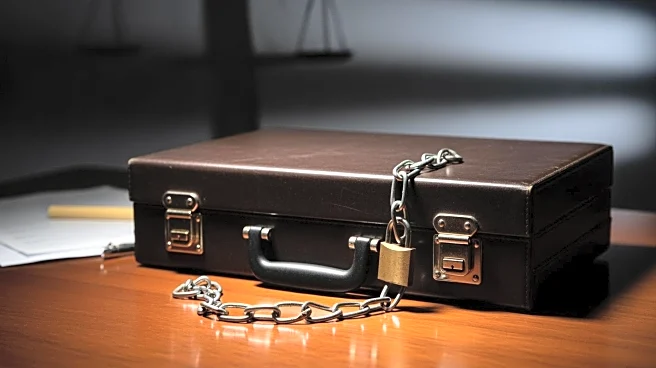What's Happening?
John Bolton, former national security adviser under President Trump, has been indicted by a federal grand jury on charges related to the unlawful transmission and retention of classified documents. The
indictment includes 18 counts, highlighting Bolton's alleged mishandling of sensitive information. This development comes amid President Trump's public suggestions of new targets for the Department of Justice. Bolton, a known critic of Trump, has been accused of retaining and transmitting classified information, which has sparked significant legal proceedings. The indictment is part of a broader context of legal actions against individuals who have been critical of Trump, including former FBI Director James Comey and New York Attorney General Letitia James.
Why It's Important?
The indictment of John Bolton is significant as it underscores ongoing tensions between President Trump and his critics. Bolton's legal troubles highlight the potential use of the Justice Department to target political adversaries, raising concerns about the politicization of legal processes. The charges against Bolton could have implications for national security protocols and the handling of classified information by government officials. This case may influence public perception of the Justice Department's impartiality and the broader political landscape, especially as it involves a high-profile figure who has been vocal against Trump.
What's Next?
Bolton's legal team is expected to challenge the indictment, arguing that the charges are politically motivated. The case will likely proceed through the courts, with Bolton's defense focusing on the legitimacy of the prosecution and the handling of classified information. The outcome of this case could set precedents for how similar cases are handled in the future, particularly those involving political figures. Observers will be watching closely to see how the Justice Department navigates the legal and political complexities of this case.
Beyond the Headlines
The indictment raises ethical questions about the balance between national security and political retribution. It also highlights the challenges in maintaining the integrity of classified information while ensuring accountability for those who handle it. The case could lead to discussions about the need for reforms in how classified information is managed and the role of political influence in legal proceedings.











